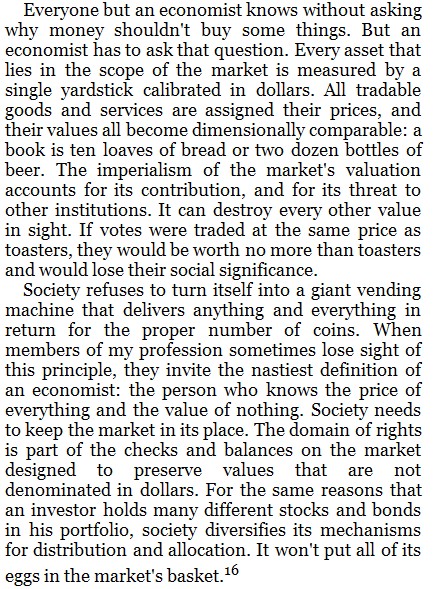Have I convinced you that Arthur Okun’s Equality and Efficiency: The Big Tradeoff is worth reading? I wish I’d read it ages ago. This passage is beautifully written:
Elsewhere Okun uses the idea of exchanging votes for cash as something most Americans would find objectionable but that an economist might take seriously. Why don’t votes go to those willing to pay the most for them? If anyone has enough faith in markets to take that question seriously they don’t understand markets!
It’s also worth asking, why do we trust government to make a better allocation of votes? Well, what’s the alternative? Does the failure to run a perfectly fraud-free election suggest a government so flawed that we should take away its power to grant voting rights?
Markets and governments fail. We know this. Yet we also have no trouble agreeing which institution ought to govern how votes are allocated. Why do we reflexively agree about voting (or other rights we take as self-evident) but not about other things, such has health care?*
Perhaps Okun will answer that question. I’ve only read Chapter 1.
* If this is too hard a question, think about organ donation. Some economists advocate a market for organs. To many others, such a thing is self-evidently repellent. Why?


